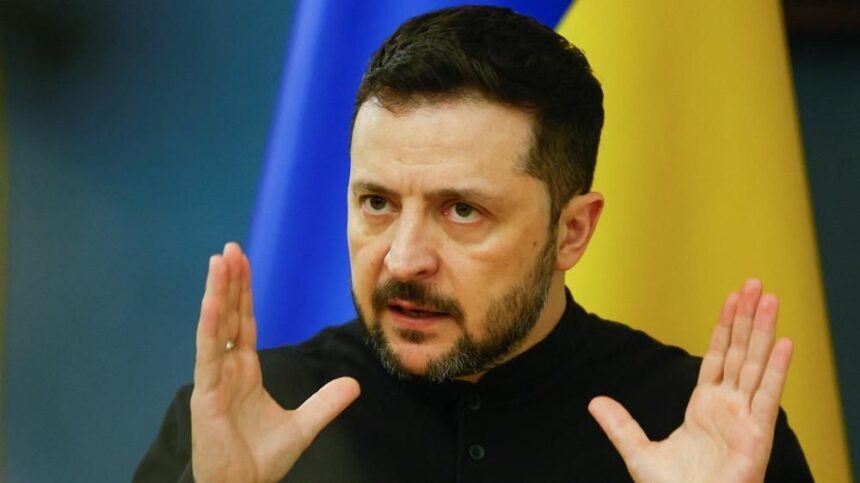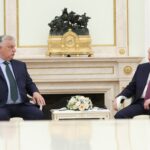President Volodymyr Zelensky was in a buoyant mood when I met him in Paris with a panel of three other European journalists. He had interrupted a meeting with French President Emmanuel Macron at the Elysee Palace and went back there for what he called a “tête à tête dinner” after the interview.
Macron had not just rolled out the red carpet for him. The Eiffel Tower, behind Zelensky in a picture window as we talked in one of Paris’s great museums, was lit up in yellow and blue, the colours of the Ukrainian national flag.
The French wanted him to feel as if he was among friends. Zelensky had come to Paris to meet leaders and diplomats from 30 other countries who are working out what they can contribute to the “coalition of the willing”, the group that UK Prime Minister Sir Keir Starmer and Emmanuel Macron are trying to organise to offer Ukraine security guarantees if there is a long-term ceasefire.
Zelensky’s welcome in Paris was a clear contrast to the dressing down he was given by US President Donald Trump and his vice president JD Vance when he visited the White House last month.
After their verbal attack, Zelensky was unceremoniously turfed out of the White House and not long afterwards Trump ordered the suspension of American military aid and intelligence to Ukraine.
It was restored after Zelensky, advised by the British, the French and other European allies, went out of his way to mend his fences with Trump and his administration.
He switched to the kind of flattering language Trump demands and agreed to an American plan for an unconditional 30-day ceasefire. He dropped his insistence on US security guarantees first, to underpin any ceasefire.
But even though US military and intelligence assistance is flowing, Trump’s ruthless suspension of it, which cost Ukrainian lives, has left a deep sense of unease in Ukraine and among its European allies.
The evidence is piling up that Trump’s United States is not a reliable ally. It is getting easier to sketch out scenarios in which it might not be an ally at all.
Most European leaders still try to act publicly as if the 80-year-old alliance with the US is healthy. But the gathering of 30 countries in Paris shows they realise they can no longer rely on the benevolence of the United States.
American presidents going back to Dwight D. Eisenhower in the late 1950s have complained, with good reason, about Europeans getting a free ride from the US security blanket over Europe. Trump has finally pulled it away.












